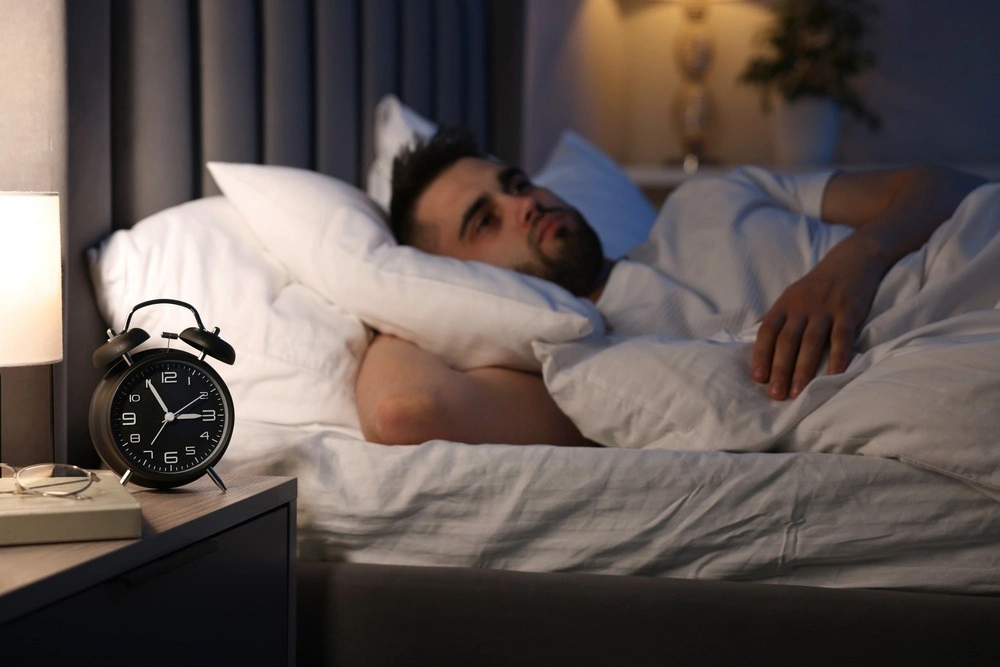We’ve all experienced those frustrating nights when sleep seems impossible to achieve. Whether it’s due to stress, discomfort, or an underlying health issue, sleepless nights can take a toll on your well-being. Chronic sleep disturbances not only leave you feeling tired and irritable but can also lead to serious health issues like heart disease, diabetes, and weakened immune function. Understanding the root causes of your sleepless nights is the first step toward finding a solution.
At Atlanta Pulmonary and Sleep Solutions, we specialize in diagnosing and treating a range of sleep disorders to help you achieve restful, restorative sleep. In this blog, we’ll explore the five leading causes of sleepless nights and how to combat them effectively.
1. Sleep Apnea: Interrupted Breathing During Sleep
One of the most common causes of sleepless nights is sleep apnea. This disorder occurs when your airway becomes blocked during sleep, causing repeated interruptions in breathing. These interruptions can occur hundreds of times per night, preventing you from reaching the deep, restful stages of sleep.
How to Combat Sleep Apnea: The most effective treatment for obstructive sleep apnea is CPAP therapy. A CPAP machine delivers a constant stream of air through a mask to keep your airway open throughout the night. At Atlanta Pulmonary and Sleep Solutions, we offer comprehensive sleep studies to diagnose sleep apnea and provide personalized treatment plans, including CPAP therapy and alternative options like oral appliances or surgery for severe cases.
2. Stress and Anxiety: Overactive Mind
Stress and anxiety are among the leading causes of sleepless nights. When your mind is racing with worries about work, family, or daily life, it can be difficult to relax and fall asleep. The body’s response to stress triggers the release of hormones like cortisol, which can disrupt your sleep patterns.
How to Combat Stress and Anxiety: Practicing relaxation techniques before bed can help calm your mind. Consider mindfulness meditation, deep breathing exercises, or progressive muscle relaxation to ease anxiety. Additionally, creating a bedtime routine that promotes relaxation, such as taking a warm bath or reading, can signal to your body that it’s time to sleep.
3. Insomnia: Difficulty Falling or Staying Asleep
Insomnia is a sleep disorder that affects millions of people, characterized by difficulty falling asleep or staying asleep throughout the night. Insomnia can be short-term (lasting a few days or weeks) or chronic (lasting months or longer). It’s often caused by stress, poor sleep habits, or other underlying medical conditions.
How to Combat Insomnia: Improving your sleep environment and habits, known as sleep hygiene, can significantly improve insomnia. This includes establishing a consistent sleep schedule, limiting screen time before bed, and creating a calm, dark, and quiet bedroom. At Atlanta Pulmonary and Sleep Solutions, we offer insomnia treatment options, including behavioral therapies like cognitive behavioral therapy for insomnia (CBT-I), which can help retrain your brain for better sleep.
4. Restless Legs Syndrome (RLS): Uncomfortable Sensations in the Legs
Restless Legs Syndrome (RLS) is a neurological condition that causes uncomfortable sensations in the legs, often described as tingling, itching, or crawling. These sensations typically worsen at night, leading to difficulty falling asleep or staying asleep.
How to Combat Restless Legs Syndrome: Managing RLS involves addressing underlying health conditions, such as iron deficiency, and making lifestyle adjustments, such as avoiding caffeine and alcohol in the evening. Your doctor may also recommend medications to relieve symptoms. At Atlanta Pulmonary and Sleep Solutions, we work with patients to manage RLS and improve their sleep quality through a combination of medical treatment and lifestyle modifications.
5. Poor Sleep Hygiene: Unhealthy Habits Before Bedtime
Poor sleep hygiene, or unhealthy bedtime habits, is a major cause of sleepless nights. Factors like inconsistent sleep schedules, excessive use of electronics before bed, and consuming caffeine or heavy meals late in the evening can interfere with your ability to fall and stay asleep.
How to Combat Poor Sleep Hygiene: Establishing good sleep hygiene is key to improving your sleep quality. Aim for a regular sleep schedule, even on weekends, and limit your exposure to blue light from phones, tablets, and TVs before bed. Creating a calming pre-sleep routine, such as reading or listening to soft music, can help signal to your brain that it’s time to wind down.
Conclusion: Find Your Solution for Restful Nights
Sleepless nights are frustrating, but understanding the underlying causes can help you take steps toward better sleep. Whether it’s addressing sleep apnea with CPAP therapy, managing stress and anxiety, or improving your sleep hygiene, there are effective solutions available.
At Atlanta Pulmonary and Sleep Solutions, we are committed to helping you overcome the challenges of sleep disorders. From sleep studies and CPAP therapy to insomnia treatments and restless legs syndrome management, our team is here to provide expert, compassionate care tailored to your needs.
If you’re struggling with sleepless nights, contact us today to schedule a consultation and take the first step toward better sleep.


